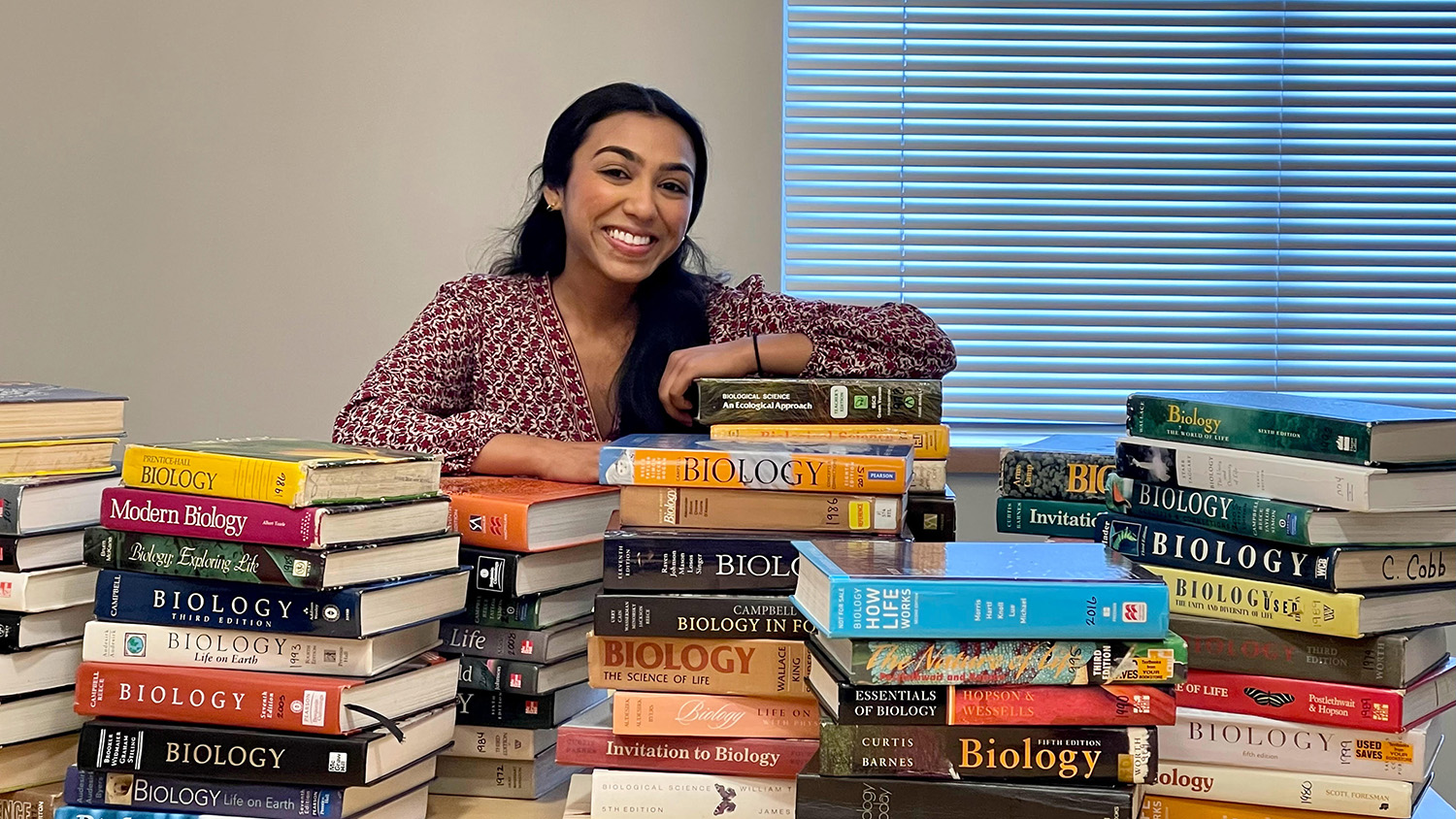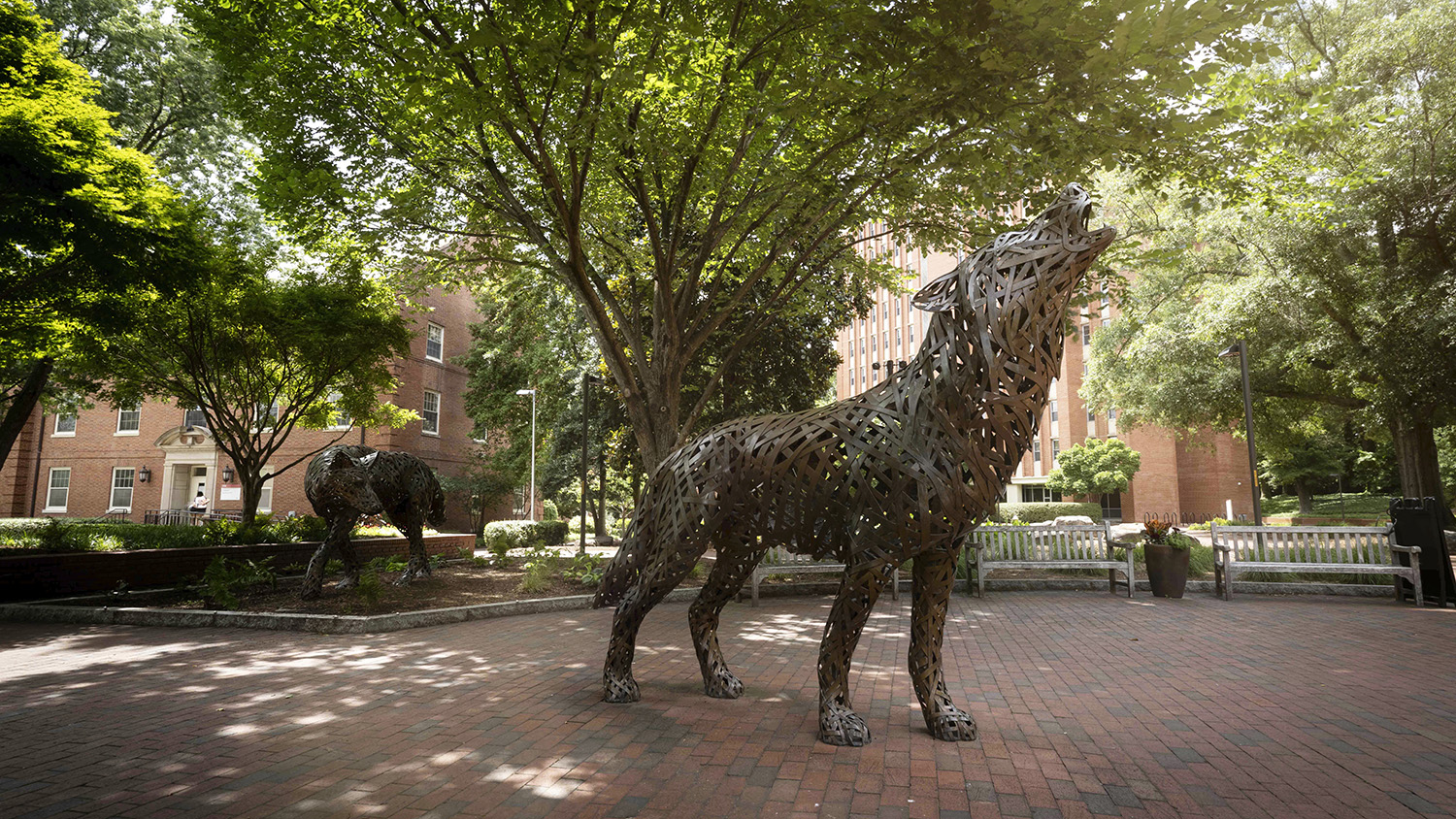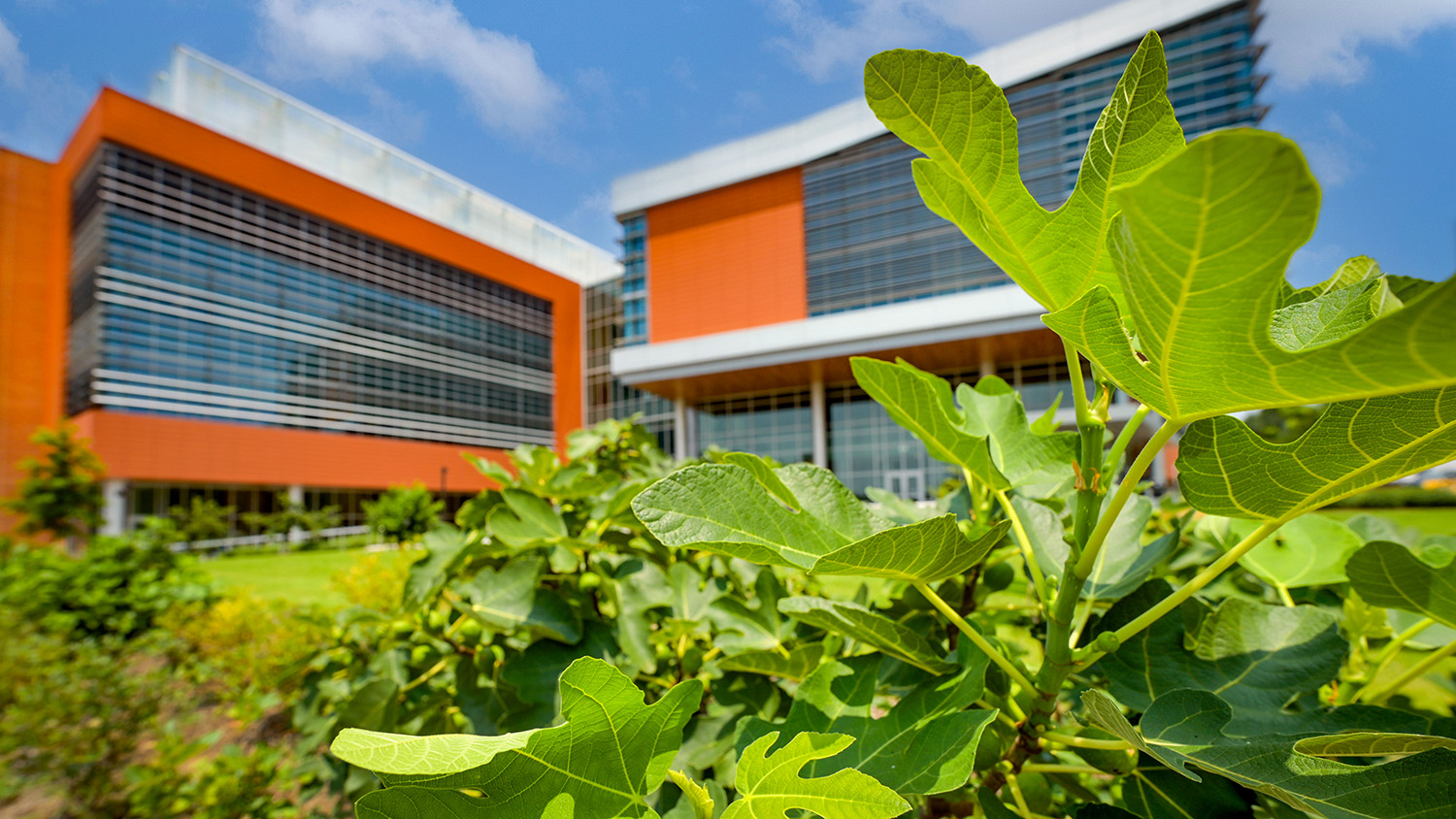NC State’s Provost’s Professional Experience Program (PEP) funds on-campus work experiences for undergraduate students that supports their academic success and gives them greater access to research and professional development opportunities. Funded by the Office of the Executive Vice Chancellor and Provost, PEP has enhanced the academic careers and professional goals of students for nearly eight years.
Rabiya Ansari, a recent NC State alumna, participated in PEP as an undergraduate with Jennifer Landin of the Department of Biological Sciences, which allowed Ansari to develop and pursue her research passion. That also led to the publication of an article, “Coverage of climate change in introductory biology textbooks, 1970-2019,” in the open-access journal PLOS ONE. We recently spoke to Ansari and Landin about their research and experience with PEP.
You can view the NC State News article on Ansari’s and Landin’s research publication, written by Matt Shipman, here.
Rabiya Ansari ‘22
Bachelor of Science in Nutrition Sciences
How did you get involved with this particular project?
Dr. Landin and I had just started this project when the pandemic shut down everything. After a couple of months, I emailed Dr. Landin asking, “Could we work on this research?” So, we met for several hours each week in a large room on an empty campus, at opposite ends of a conference table, with masks on a deserted campus. With the support of PEP, we worked on this research for three years, studying the coverage of climate change in textbooks.
What was your experience working with PEP?
PEP allowed me to have meaningful on-campus employment that enhanced my career development and knowledge in subjects I was interested in, such as climate change education. With PEP’s support, I could dive into and explore my interests more deeply while also managing undergrad classes. I conducted this research for three years, and the entire time PEP showed their support and motivation by investing in us to complete this research project, which we successfully did!
What are you pursuing now, and how did your time in PEP impact this trajectory?
As a recent alumnus, I am looking to pursue a job relating to humanitarian aid at global NGOs. In the future, I plan to continue my studies toward obtaining an MBA. Before this research, I was still determining what career path to take upon graduating. This research experience confirmed my path of educating communities through higher knowledge, such as the changes we can make as individuals and communities to improve our society.
Jennifer Landin
Teaching Associate Professor, Department of Biological Sciences
What inspired your research on this particular project?
I’m very interested in environmental issues, history and education. We can see how educators probably taught scientific concepts by analyzing old versions of textbooks. I was looking at a 1978 biology textbook to see how the environmental movement of the 70s affected the presentation of an ecological issue and was surprised to see a paragraph on global warming. That observation led us to ask how the topic had changed over 50 years of coverage.
What was your experience working with PEP?
I’ve been honored to receive PEP funding for many research projects. Projects by two PEP students (so far) have resulted in very popular articles. Working with such amazing students is a great experience.
How did PEP impact what you were able to do with this research?
As a faculty member focused on teaching, I don’t have a lot of grant funding. PEP funding is so helpful to be able to hire excellent students to work on these projects. I simply would not be able to do this research without the help of the Provost’s Office funding.
How can working with undergraduate students on research benefit faculty in the way they teach and mentor?
Undergraduate students are so inspiring! I remember back on my days as an undergrad; there’s no way I would have felt confident enough to author a research paper. Rabiya is especially wonderful. We started this project just before the pandemic hit. Our work shut down when the school shifted online. But Rabiya made the most of a bad situation. She emailed me, asking if we could restart our research. She was tired of sitting at home and wanted to work on a project. It took three years of meeting in a large empty conference room on weekends to collect our data and write the paper. I’m in awe of Rabiya’s persistence and motivation!
- Categories:



